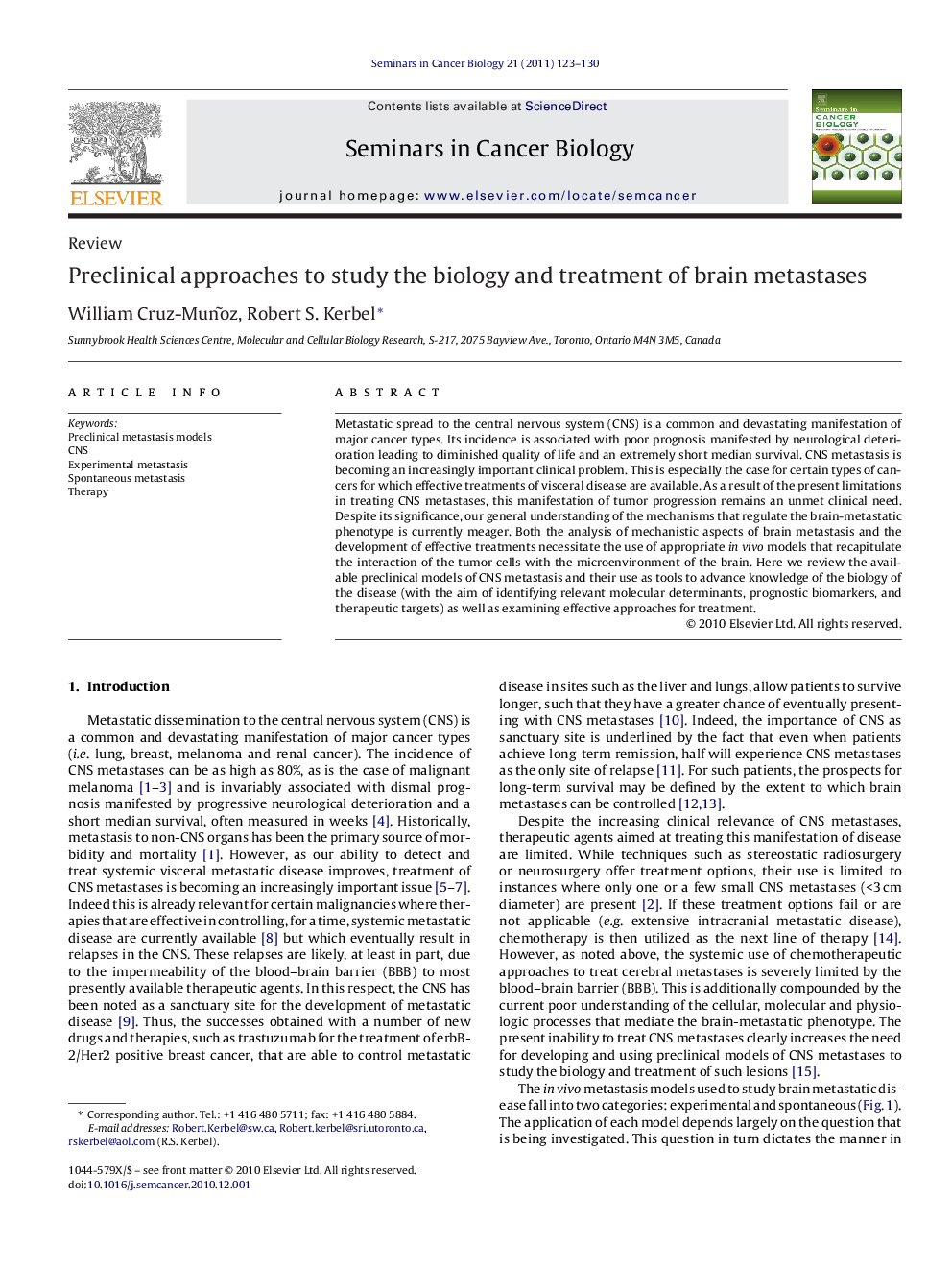| Article ID | Journal | Published Year | Pages | File Type |
|---|---|---|---|---|
| 2023826 | Seminars in Cancer Biology | 2011 | 8 Pages |
Metastatic spread to the central nervous system (CNS) is a common and devastating manifestation of major cancer types. Its incidence is associated with poor prognosis manifested by neurological deterioration leading to diminished quality of life and an extremely short median survival. CNS metastasis is becoming an increasingly important clinical problem. This is especially the case for certain types of cancers for which effective treatments of visceral disease are available. As a result of the present limitations in treating CNS metastases, this manifestation of tumor progression remains an unmet clinical need. Despite its significance, our general understanding of the mechanisms that regulate the brain-metastatic phenotype is currently meager. Both the analysis of mechanistic aspects of brain metastasis and the development of effective treatments necessitate the use of appropriate in vivo models that recapitulate the interaction of the tumor cells with the microenvironment of the brain. Here we review the available preclinical models of CNS metastasis and their use as tools to advance knowledge of the biology of the disease (with the aim of identifying relevant molecular determinants, prognostic biomarkers, and therapeutic targets) as well as examining effective approaches for treatment.
